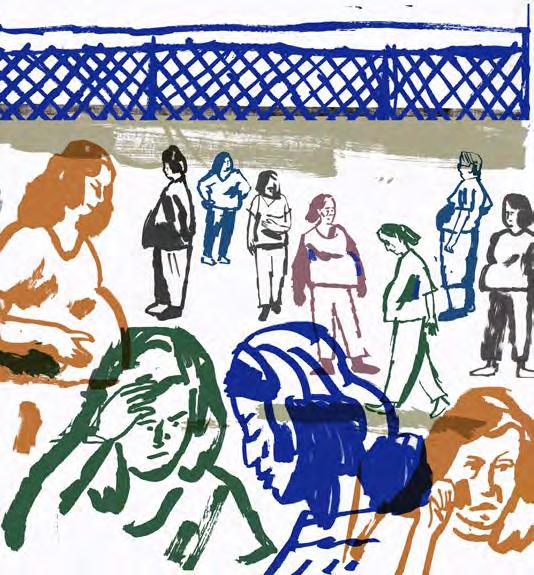
3 minute read
Prisoners’ Advice Service: Living in prison with a disability
Living in prison with a disability
Prisoners’ Advice Service (PAS) is an independent charity providing free legal advice, support and representation for adults in prison throughout England and Wales. PAS’ Women Prisoners’ Caseworker, Kate Lill, explains disability discrimination in women’s prisons and the legal protections ofered to women with disabilities under the Equality Act.
Advertisement
Many women in prison have conditions or impairments, and experience physical and mental ill health. However, women in prison with disabilities do not always realise that they are entitled to appropriate care and support, and should not experience any discrimination as a result of their impairment (loss of function or ability). The Equality Act 2010 outlines the legal responsibilities owed to people with disabilities; women with disabilities in prison can use this legislation to help access the services they need.
There is no comprehensive list of conditions, illnesses and impairments that constitute a disability. However, under the Equality Act, disability is defined as a ‘physical or mental impairment’ which has a ‘substantial and long-term adverse [negative] effect on his or her ability to carry out normal day-to-day activities.’ This is a wide-ranging definition and encompasses many conditions, including:
- Physical impairments (e.g. mobility issues and diabetes)
- Learning disabilities (e.g. dyslexia)
- Mental health conditions (e.g. bipolar disorder and depression)
- Sensory impairments (e.g. hearing or sight difficulties).
A disability does not need to be registered, nor does a certificate need to be provided, for an individual to access the rights afforded by the Equality Act. Instead, a person simply needs to be able to demonstrate that they have a physical or mental impairment, and that the effect of it is ‘substantial’ and ‘long-term’ (i.e. has lasted for more than a year).
Prisons, both public and private, have a legal obligation to make reasonable adjustments for people in prison with disabilities under section 20 of the Equality Act. Where a public body, such as a prison, has a practice, criteria or physical feature that puts a person with a disability at a substantial disadvantage in comparison to someone without a disability, the prison has a legal obligation to take reasonable steps to remove the obstacle.
Women can use this legal obligation to access the help they need. This can include being provided with items such as hearing aids or wheelchairs, as well as adapting prison practices, such as offending behaviour courses, for people with learning difficulties. There is not an exhaustive list of adjustments that are available in prison; but they should be based on a person’s individual needs. Anyone with a disability should not be required to pay for these adjustments.
Under the Care Act 2014 and Prison Service Instruction 03/2016, women with disabilities or chronic health needs can also request a community care assessment from the local authority’s adult social care department to assess their needs in prison and, if necessary, to provide relevant services and support.
Failing to provide ‘reasonable adjustments’ for women with disabilities can amount to indirect discrimination under the Equality Act. Women can also be subject to direct discrimination, harassment or victimisation due to their disability, which is also prohibited by the law.
If a person with a disability is not receiving the care they are entitled to, they should submit a written application to the Disability Liaison Officer in prison, or another healthcare professional in prison, requesting the necessary adjustments. If this does not resolve the problem, the formal complaints procedure should be followed. Where women are not able to resolve their issues, they can contact PAS for advice, as there may be grounds to legally challenge the treatment and support, or lack thereof, that they are receiving.
The Prisoners’ Advice Service offers free legal advice and support to adult prisoners throughout England and Wales regarding their human, legal and healthcare rights, conditions of imprisonment and the application of Prison Law and the Prison Rules. It can also advise on matters of Family Law, and of Immigration Law to prisoners with issues relating to detention or deportation. PAS’ Advice Line is open four days per week and can be reached at 020 7253 3323. You can also request help by writing to Prisoners’ Advice Service at PO Box 46199, London, EC1M 4XA.










